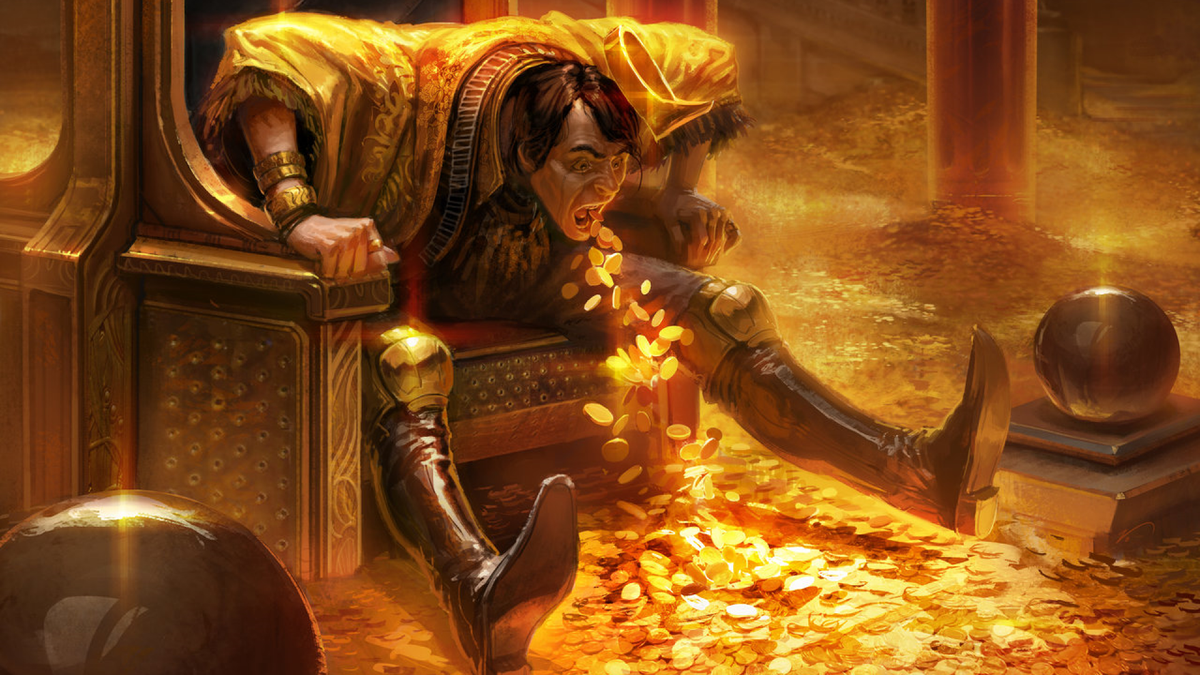Want to peer into Dungeons & Dragons’ future? Check out the state of Magic: The Gathering
With the rest of the company in dire financial straits, Daddy Hasbro asks D&D, "Why can't you be more like your sibling?"

Dungeons & Dragons’ new trio of core rulebooks–the foundation of the next decade for the world’s biggest tabletop RPG–will stagger releases across several months (to the point that the Monster Manual won’t hit shelves until early 2025). It’s a slightly embarrassing state for a game rebranding its new (don’t say it) edition as “D&D 2024”. But the company doesn’t seem to care. During a recent Hasbro earnings call, investors didn’t harangue CEO Chris Cocks for failing to publish the DM’s Guide alongside the Player’s Handbook. Instead, they asked about the next film and when the world could expect another Baldur’s Gate 3-sized windfall.
They know that physical books are luxury goods when compared to the profits the company rakes in on licensed deals. We already knew that Hasbro was pointing Dungeons & Dragons towards a digital future with its still-in-development virtual tabletop and the company’s purchase of D&D Beyond from Fandom in 2022. But wooden planks are not a house, and a bunch of digital assets aren’t a business plan. Hasbro has been gun shy with details about how exactly it intends to implement a more fully online D&D, a stance that likely won’t shift until after the 2024 books are in players’ hands.
We do have some hints, as Cocks told one curious investor that Hasbro sees a lot of promise in bringing “Universes Beyond-style content” to D&D Beyond in the form of “targeted entertainment working through partners in an asset-light model”. His withering corpo-speak signals a version of MTG’s crossover imprint model for the other tabletop giant, perhaps one that includes tie-in skins for dice and character sheets, a la the recent Baldur’s Gate 3 pack, or other licensed microtransactions: licensed character art for sheets, VTT overlays, and official terrain maps for Wakanda, Spider-Man’s New York or Midgard.
The Professor's video on product fatigue in Magic: The Gathering
If this all sounds a bit like Fortnite, that’s probably on their vision board. A collaborative tabletop game couldn’t support a battle pass, but Hasbro would happily settle for a monthly subscription service that guarantees recurring revenue in exchange for digital gewgaws, bling and the privilege of owning a PDF where Hulk has six stats and an armor class. That’s not to denigrate the time-honored tradition of extruding players’ favorite media through a 5E-shaped hole, but why collect pennies from DM’s Guild sales when licensed crossovers sign much larger checks?
How do I know that? Over the past three years, I have watched Magic: The Gathering, an already expensive and premium hobby, pivot directly into squeezing blood from the proverbial rock through a similar reliance on outside IP. The 30-year-old trading card game continually smashes already ludicrous growth projections on its path to becoming a billion-dollar brand for corporate owner Hasbro, but it’s only become a victim of its own success.





